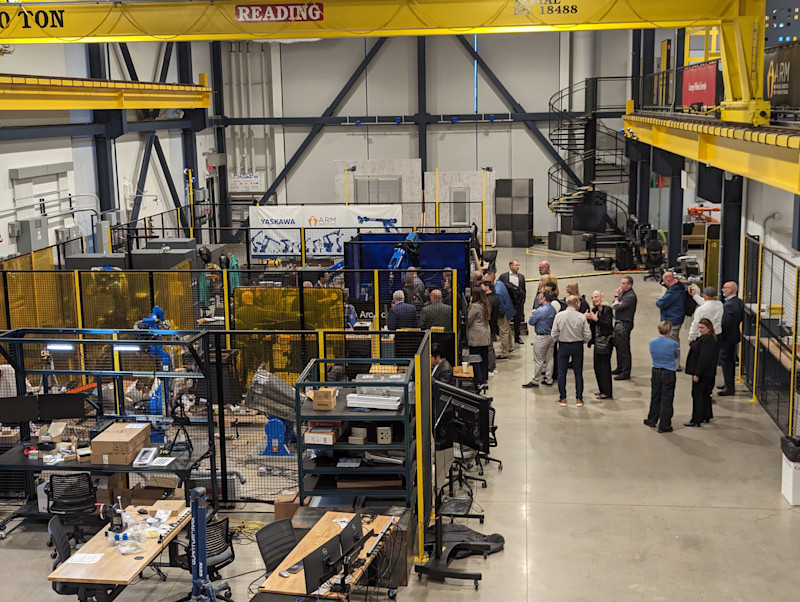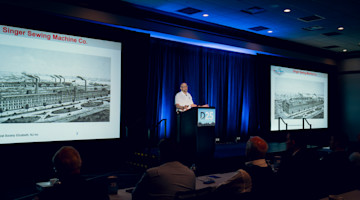AMT, in collaboration with the ARM (Advanced Robotics for Manufacturing) Institute, spearheaded the recent Joint Technology Summit at the ARM Institute’s Pittsburgh facility. This highly anticipated two-day event, held on April 2-3, 2024, brought together industry leaders and experts from AMT, AGMA (American Gear Manufacturers Association), and NTMA (National Tooling and Machining Association) to explore the latest innovations shaping the manufacturing landscape.
The summit highlighted several advanced manufacturing technologies poised to grow the manufacturing base, including robotics, artificial intelligence in digital manufacturing, materials science, and vision systems. These technologies are set to revolutionize the industry, fostering precision, efficiency, and innovation.
Ira Moskowitz, CEO, and Chuck Brandt, Ph.D., chief technology officer, both of the ARM Institute (IMTS booth #121217), provided an overview of the institute’s Robotics Manufacturing Hub, emphasizing pathways for small and medium-sized businesses to leverage robotics technologies effectively.
Robotics technology is becoming increasingly essential in manufacturing, requiring precision and dexterity. Scott Yoders, vice president of sales at Liebherr Gear Technology (IMTS booth #236914), discussed advancements in gear manufacturing that drive precise and repeatable positioning, underscoring the importance of gears as foundational components in robotics.
The transformative potential of AI in digital manufacturing was a key focus. Frank Braski, chief evangelist at Softura, presented a vision of AI's impact on production processes, efficiency, and adaptability. He emphasized how AI technologies, such as generative AI and IIoT (Industrial Internet of Things) can significantly enhance manufacturing operations by predicting, generating, summarizing, analyzing, and interpreting data, thus making processes smarter and more efficient.
Vision AI is redefining workplace safety standards. Harsh Murari, chief technology officer of Visionify, demonstrated how vision AI ensures precision and protection in manufacturing environments, contributing to safer and more efficient workplaces.
The landscape of materials science is rapidly evolving due to high-performance computing and additive manufacturing. Carola Sekreter, director of business development at ASM International, discussed the dynamic landscape of material research collaborations and the value of fostering partnerships in advancing materials science. Standards play a pivotal role in the development and qualification of new materials, ensuring they meet the stringent requirements of modern manufacturing.
The summit also emphasized the importance of government partnerships in advancing these technologies. Collaborative efforts between industry and government are crucial for driving technological advancements and supporting the manufacturing sector's growth.
AMT's leadership and collaboration with industry partners at the Joint Technology Summit facilitated an invaluable platform for exploring and embracing the latest advancements in manufacturing technology. This event reinforced AMT's position at the forefront of the industry's evolution, highlighting the critical trends and needs that will shape the future of manufacturing.
Connect with representatives at the ARM Institute (IMTS booth #121217), and explore the future of automation and robotics at IMTS 2024, Sept. 9-14, at McCormick Place in Chicago. Register now at IMTS.com/Register.






